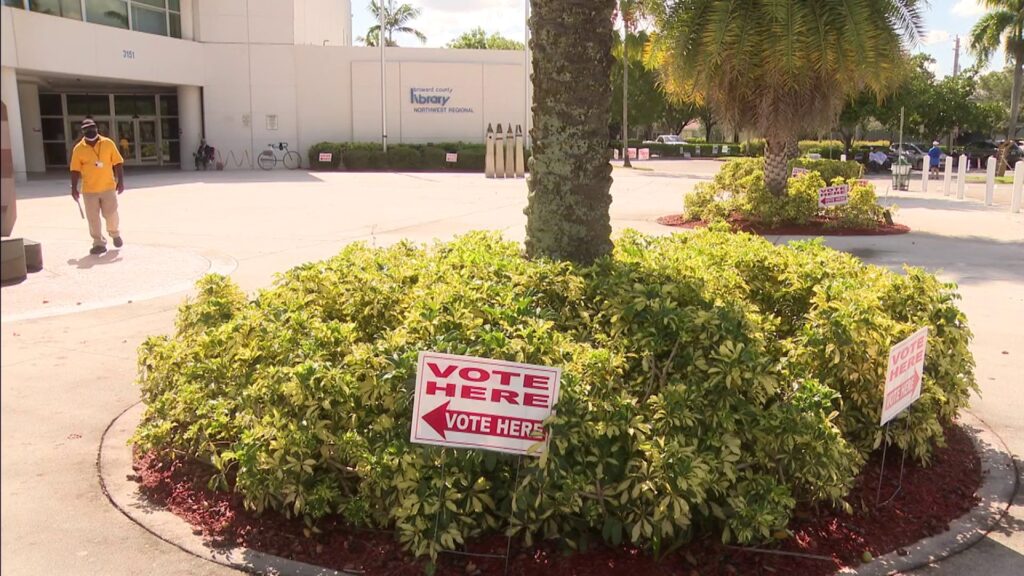Local elections are a crucial part of the democratic process, allowing citizens to elect officials who will represent their interests at the local level. These elections determine who will hold positions such as mayor, city council member, school board member, and county commissioner. The decisions made by these officials have a direct impact on the daily lives of community members, making it essential for voters to be informed and engaged in the electoral process.
Local elections play a significant role in shaping your community. The officials elected in these elections make decisions that affect various aspects of your daily life, including education, transportation, public safety, and local taxes. They have the power to enact policies and allocate resources that directly impact the quality of life in your neighborhood or town. By participating in local elections, you have the opportunity to influence the direction and priorities of your community.
Key Takeaways
- Local elections are important and often overlooked
- Local elections impact daily life and community issues
- Information on local elections can be found through government websites and local news sources
- Researching local candidates involves looking at their platforms and past actions
- Voter guides and sample ballots can help navigate the voting process
Understanding the Importance of Local Elections
Local elections have a direct impact on your daily life. The officials elected in these elections make decisions that affect various aspects of your community, including education, transportation, public safety, and local taxes. For example, school board members determine policies related to curriculum, school funding, and teacher hiring. City council members make decisions about zoning regulations, infrastructure projects, and public transportation. County commissioners allocate resources for public services such as parks, libraries, and emergency services.
These decisions can have a profound effect on the quality of life in your community. For instance, if you are a parent with children in the local school district, the policies enacted by school board members can directly impact your children’s education. If you rely on public transportation to commute to work or school, the decisions made by city council members can affect the availability and affordability of transportation options. By participating in local elections and electing officials who align with your values and priorities, you can help shape the future of your community.
Where to Find Information on Local Elections
When it comes to researching local elections, there are several sources of information available to voters. Local government websites are a valuable resource for finding information about candidates, ballot measures, and voting locations. These websites often provide candidate profiles, campaign finance information, and details about upcoming election events. Additionally, local news sources such as newspapers, television stations, and online news outlets often cover local elections extensively, providing in-depth coverage of candidates and issues.
Another useful resource for voters is the voter information guide provided by the local election office. These guides typically contain information about candidates, ballot measures, and voting procedures. They may also include statements from candidates and arguments for and against ballot measures. Voter information guides can be obtained from the local election office or accessed online.
Tips for Researching Local Candidates
When researching local candidates, it is essential to gather information about their backgrounds and experience. Look for information about their education, professional experience, and community involvement. Consider whether their qualifications align with the responsibilities of the position they are seeking. For example, if a candidate is running for school board, it may be important to know if they have experience in education or have served on a school board in the past.
It is also important to evaluate a candidate’s platform and positions on key issues. Look for information about their stance on issues that are important to you, such as education, public safety, or environmental protection. Consider whether their values align with your own and whether they have a track record of advocating for the issues that matter to you.
How to Navigate Voter Guides and Sample Ballots
Voter guides and sample ballots can be overwhelming at first glance, but with a little understanding of their layout and some tips for making informed decisions, they can be valuable tools for voters.
Voter guides typically provide information about candidates running for various positions in the upcoming election. They may include candidate profiles, statements from candidates, and arguments for and against ballot measures. Take the time to read through the candidate profiles and statements to get a sense of each candidate’s background, experience, and positions on key issues. Pay attention to any endorsements or recommendations from trusted organizations or individuals.
Sample ballots show the actual ballot that you will see when you go to vote. They list all the candidates running for each position and the ballot measures that will be on the ballot. Take the time to familiarize yourself with the layout of the sample ballot before you go to vote. This will help you navigate the ballot more efficiently and make informed decisions.
Understanding Local Ballot Measures and Propositions

Local ballot measures and propositions are proposals that are put before voters to decide on specific issues or policies. These measures can cover a wide range of topics, including tax increases or decreases, bond measures for infrastructure projects, changes to local ordinances, or funding for specific programs or services.
It is important to understand the potential impact of these measures before casting your vote. Read the arguments for and against each measure in the voter guide or sample ballot. Consider how the measure aligns with your values and priorities. Think about the potential consequences of passing or rejecting the measure and how it may affect your community.
The Role of Local Political Parties and Organizations
Local political parties and organizations play a significant role in local elections. They often endorse candidates, provide campaign support, and mobilize volunteers to help with voter outreach efforts. These organizations can have a significant influence on the outcome of local elections.
Local political parties are affiliated with national political parties but focus on local issues and candidates. They often hold meetings, endorse candidates, and provide resources for campaign activities. Joining a local political party can be a way to get involved in local politics and have a voice in shaping your community.
There are also various nonpartisan organizations that focus on specific issues or causes. These organizations may endorse candidates or ballot measures that align with their mission and values. Getting involved with these organizations can be a way to support causes that are important to you and make a difference in your community.
How to Get Involved in Local Campaigns and Volunteer Opportunities
If you are interested in getting more involved in local politics, there are many opportunities for volunteering in local campaigns. Campaigns often need volunteers to help with activities such as canvassing, phone banking, and voter registration drives. Volunteering for a campaign can be a great way to learn more about the candidates and the issues they care about, as well as make a direct impact on the outcome of the election.
In addition to volunteering for campaigns, there are other ways to support local candidates and causes. You can attend candidate forums or town hall meetings to learn more about the candidates and their positions on key issues. You can also donate to campaigns or participate in fundraising events. By getting involved in local politics, you can help shape the future of your community and make a difference in the issues that matter to you.
The Importance of Voter Registration and Turnout in Local Elections
Voter registration and turnout are crucial factors in local elections. In order to participate in an election, you must be registered to vote. Voter registration deadlines vary by state, so it is important to check the registration deadline for your area. You can register to vote online, by mail, or in person at your local election office.
Encouraging others to register to vote is also important for increasing voter turnout in local elections. Talk to your friends, family, and neighbors about the importance of voting and help them navigate the voter registration process if needed. By increasing voter registration and turnout, you can help ensure that the voices of your community are heard in local elections.
Empowering Yourself Through Local Civic Engagement
Local elections are an essential part of the democratic process, allowing citizens to elect officials who will represent their interests at the local level. The decisions made by these officials have a direct impact on the daily lives of community members, making it crucial for voters to be informed and engaged in the electoral process.
By researching local candidates, navigating voter guides and sample ballots, understanding local ballot measures and propositions, and getting involved in local campaigns and volunteer opportunities, you can empower yourself to make a difference in your community. Voter registration and turnout are also critical factors in local elections, so it is important to register to vote and encourage others to do so.
By participating in local elections and engaging in local civic activities, you can help shape the future of your community and make a positive impact on the issues that matter to you. Your voice matters, and by getting involved in local politics, you can ensure that your community is represented by officials who share your values and priorities.
If you’re looking for additional resources to help you navigate local elections, you might find this article on social media strategies for political campaigns from BestCandidate.net to be useful. It provides insights and tips on how candidates can effectively leverage social media platforms to engage with voters and spread their message. Check it out here for valuable information on utilizing social media in local elections.






